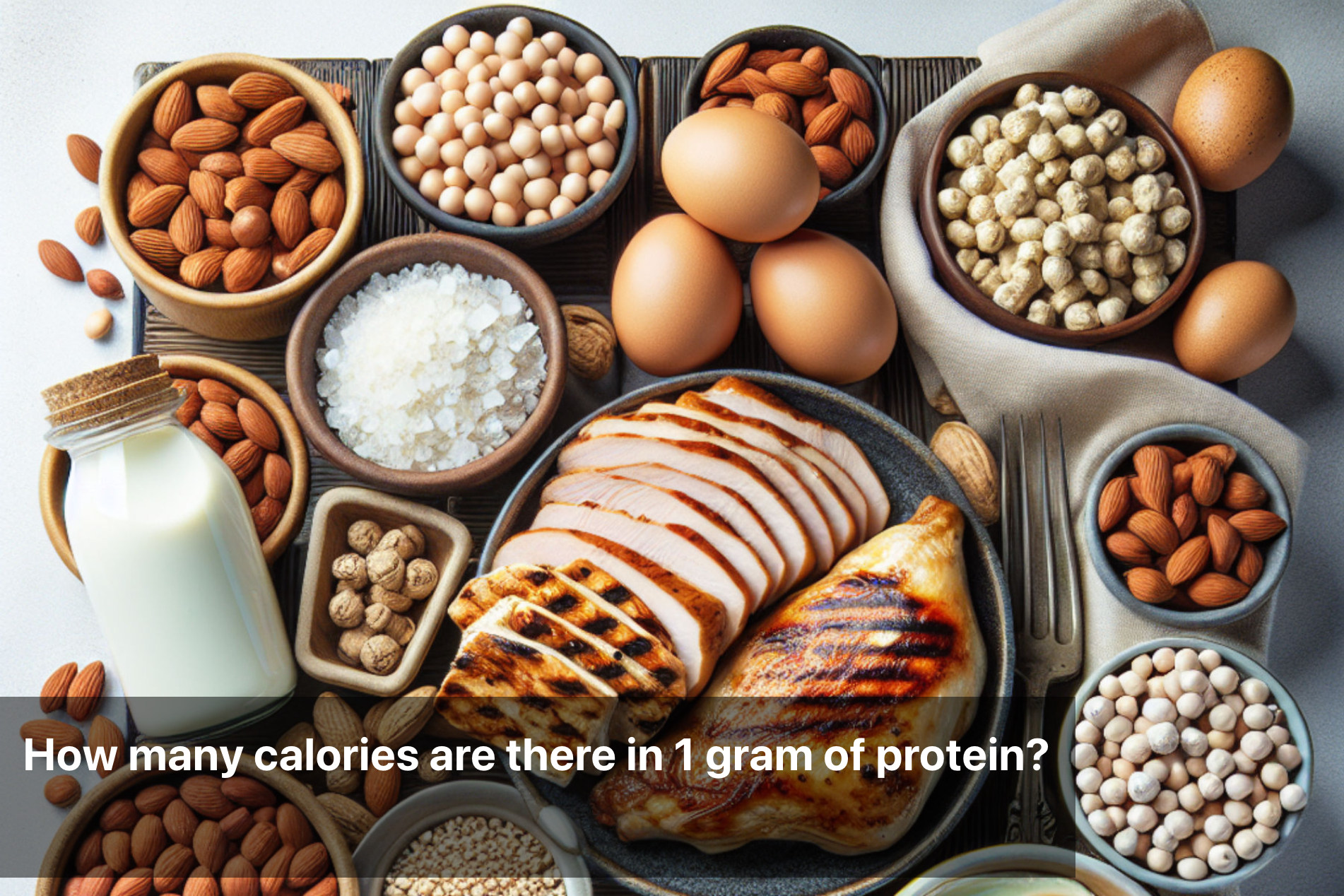
How many calories are there in 1 gram of protein?
Proteins are essential components of a balanced diet as they play a crucial role in various bodily functions. When we talk about macronutrients in our diet, proteins stand out not just for their importance but also for their calorie content. Unlike carbohydrates and fats, proteins contain fewer calories per gram – approximately 4 calories in 1 gram of protein.
Understanding the calorie content of proteins is vital for effective diet planning and maintaining a healthy lifestyle. While each gram of protein provides 4 calories, it's important to know that proteins are not just a source of energy but also play a significant role in muscle growth and repair. This is why including an adequate amount of protein in your diet is essential for overall health and well-being.
As we delve deeper into the world of macronutrients, proteins emerge as a versatile component that is not only satiating but also aids in weight management. Whether you are focusing on building muscle, losing weight, or just aiming for a balanced diet, proteins play a crucial role in achieving these goals.

Calories in Proteins
Proteins are an essential component of a balanced diet, playing a crucial role in various bodily functions such as muscle building and repair. When it comes to understanding the calorie content of proteins, it's important to note that proteins contain approximately 4 calories per gram. This means that consuming 1 gram of protein provides 4 calories to the body.
In comparison to other macronutrients like carbohydrates and fats, proteins have the same calorie content per gram, which is 4 calories. However, proteins serve a different purpose in the body compared to carbohydrates and fats. While all three macronutrients provide energy, proteins are primarily known for their role in building and repairing tissues.
Knowing the calorie content in 1 gram of protein is beneficial when planning a balanced diet. By understanding that proteins offer 4 calories per gram, individuals can make informed choices about their food intake. This knowledge helps in balancing macronutrient consumption and ensuring that the body receives an adequate amount of protein for optimal health.
Thus, proteins contain 4 calories per gram, similar to carbohydrates and fats. Despite the identical calorie content, proteins play a unique role in the body, emphasizing the importance of including protein-rich foods in one's diet for overall well-being.
Factors Affecting Calorie Content of Protein
Source of Protein: Different protein sources like animal-based (meat, dairy) and plant-based (legumes, nuts) may have varying calorie content due to their nutrient composition.
Digestibility: The extent to which protein is digested and absorbed varies among different protein sources, affecting the actual calories obtained from them.
Processing and Cooking Methods: Processing techniques and cooking methods can alter the digestibility and availability of protein, thereby impacting its calorie content.
Protein Composition: The amino acid profile of protein sources can influence energy utilization, with some amino acids being more readily metabolized than others.
Fiber and Water Content: Foods rich in protein may also contain varying amounts of fiber and water, which can affect the overall energy density and calorie content.
Presence of Fat: Protein-rich foods, particularly animal-based sources, often contain varying amounts of fat alongside protein, contributing additional calories.
Individual Metabolism: Differences in individual metabolism, gut microbiota, and metabolic rate can influence how efficiently the body utilizes calories from protein.
Cooking Losses: During cooking, some protein may be lost due to heat exposure or leaching into cooking liquids, impacting the final calorie content of the food.
Food Pairings: Combining protein with other macronutrients like carbohydrates and fats can affect how the body metabolizes and utilizes calories from protein-containing meals.
Bioavailability: The extent to which protein is absorbed and utilized by the body can vary depending on factors such as food processing, cooking, and individual digestive health.

Protein and Energy: Caloric Breakdown
Understanding the calorie content of proteins is essential for maintaining a balanced diet and achieving health and weight management goals. Proteins are a vital macronutrient that plays a crucial role in various bodily functions. With approximately 4 calories in 1 gram of protein, they are an efficient source of energy.
Including an adequate amount of protein in your diet is crucial for muscle repair, growth, and overall health. It helps in maintaining satiety, preventing overeating, and supporting weight management efforts. Proteins also aid in boosting metabolism, which can further contribute to weight loss or maintenance.
Moreover, different types of proteins may have varying calorie contents, influenced by factors such as food processing and cooking methods. By being mindful of these factors, individuals can make informed choices about their protein intake to align with their dietary needs and preferences.
In essence, prioritizing protein consumption, along with a well-rounded diet rich in other essential nutrients, is key to promoting overall health and well-being. Make sure to incorporate a variety of protein sources into your meals to reap the full benefits that this macronutrient has to offer.
This Blog post is an initiative by Lo! Foods, to provide accurate and Nutritionist / Doctor approved information related to Health. Lo! Foods is India's leading brand for Everyday Functional Foods. Foods designed for specific Health conditions or Needs. Lo! Foods also runs India's largest range of Low Carb Healthy Cloud Kitchens, under the brand names of Lo!, ProteinChef, ATH (All Things Healthy) and DiabeSmart.















Leave a comment
Your email address will not be published.